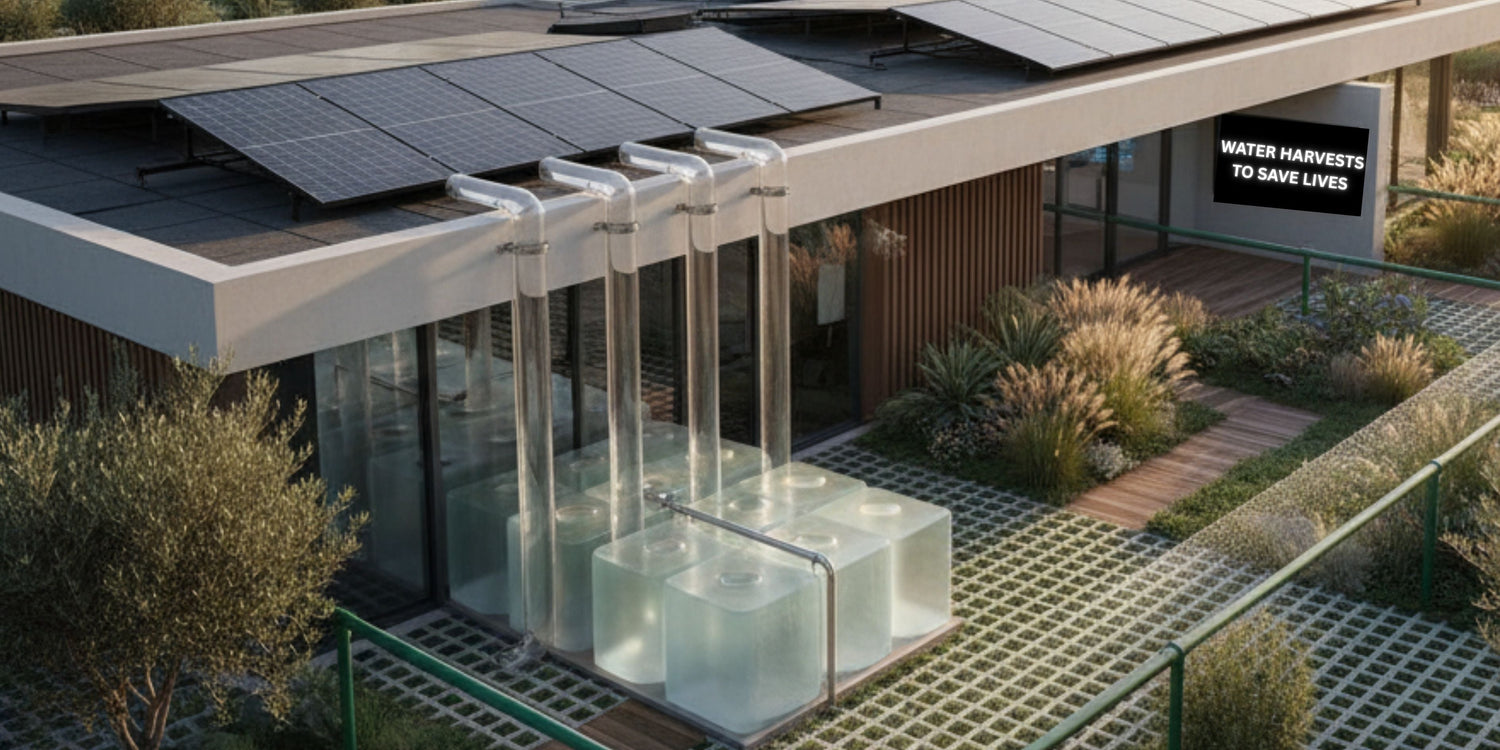Water scarcity is no longer a future concern—it’s a reality many households face today. With rising urbanization, unpredictable weather, and growing demand for freshwater, families are asking one big question: Why rainwater harvesting is important for homes in 2025? Let’s break down the answers clearly and practically.
Why do modern homes need Rainwater Harvesting?
Families often struggle with high water bills, unreliable municipal supply, and even water restrictions during peak summers. A Rainwater collecting System directly addresses these issues by allowing homeowners to collect and store rainwater for daily use. This stored water can be used for gardening, washing, cleaning, or even filtered for drinking with a Home Water Filtration System.
With cities expanding and groundwater levels dropping, adopting a Rainwater Collection System is no longer a luxury—it’s a necessity in 2025.
How does a Rainwater Filter make the system safe for homes?
One of the main worries homeowners have is about water quality. A Rain water Filter ensures that leaves, dust, and debris are removed before the water enters the storage tank. Without it, rainwater can become unsafe or contaminate your system.
Today, advanced options like a rain water harvesting filter or a rainwater purify for the home are designed to fit seamlessly into your pipeline, ensuring your harvested water is clean and usable. This makes the entire process safe, simple, and worry-free.
Can rainwater actually reduce household expenses?
Yes, and significantly so. Water tariffs are increasing each year, and a Rainwater collecting System helps cut down costs by reducing dependence on municipal supply. When paired with a Rainwater Filter System, the harvested water can even replace a good portion of your household consumption.
This not only saves money but also offers peace of mind during water shortages—a common issue in many urban communities.
Is it complicated to set up a Rainwater Collection System?
A common myth is that harvesting rainwater requires a large budget or complex installation. In reality, modern Rainwater Harvesting Accessories make setup easier than ever.
From rooftop catchments to compact rainwater harvesting filter for home designs, the process is scalable. Whether you live in an independent house or a small apartment, there’s a solution that can be tailored to your needs without requiring heavy maintenance.
How does rainwater collecting help the environment?
Every drop you harvest reduces pressure on already stressed water resources. By diverting rain into storage instead of letting it run off, you not only secure water for your household but also recharge groundwater levels and prevent soil erosion.
Using a Rain water filter for home ensures that the collected water is sustainable for long-term use. In 2025, when climate change is making rainfall patterns unpredictable, this practice directly supports environmental resilience.
Can harvested rainwater be used for drinking?
This is another major concern among homeowners. While raw rainwater isn’t safe to drink directly, once passed through a Home Water Filtration System, it can meet drinking standards. Pairing a rainwater filter with modern purification methods gives you access to safe, clean drinking water right at home.
Families that invest in this setup find themselves less reliant on bottled water, reducing both costs and plastic waste.
What are the health benefits of using harvested water?
Hard water from borewells often causes skin irritation, scaling on utensils, and damage to appliances. In contrast, rainwater is naturally soft. With the right rain water harvesting filter, it can be safely used for bathing, cleaning, and laundry.
Not only does this protect your health, but it also increases the lifespan of your household systems and reduces the need for chemical detergents.
Why is 2025 the right time to start?
Experts stress that the demand for freshwater will far outpace supply within this decade. Municipal water boards are already struggling to keep up with growing populations. Adopting a Rainwater Harvesting System in 2025 means preparing your home for the future rather than reacting to a crisis later.
With smarter Rainwater Filter System technologies available today, households can start small and expand gradually. This future-ready approach ensures your home is always water-secure.
What are some practical applications of harvested water?
Households that have adopted a Rainwater Collection System use it in multiple ways:
-
Gardening & Irrigation – Plants thrive better with naturally soft rainwater.
-
Washing & Cleaning – Reduces dependency on municipal supply.
-
Toilets & Laundry – Saves gallons of treated water daily.
-
Filtered Drinking Water – With a rain water harvesting filter, water can be safely purified for consumption.
This versatility is what makes rainwater collecting one of the smartest investments in 2025.
What if you live in an area with limited rainfall?
Many homeowners think harvesting isn’t useful in regions with short or seasonal rains. The truth is, even in such areas, a properly designed rain water filter for home can maximize every drop.
Modern Rainwater Harvesting Accessories are designed to capture and store efficiently, ensuring households benefit even from limited rainfall.
Looking Ahead with Smarter Water Choices
The question isn’t whether you can afford to start rainwater collecting in 2025—it’s whether you can afford not to. Water is becoming a precious resource, and households that act early secure not just savings but also sustainability.
With the right rainwater harvesting filter for home, you gain independence, resilience, and peace of mind for years to come. And when you’re ready to take that step, Rainy Filters is here to guide you toward smarter water solutions.
Key Takeaways:
-
Rainwater collecting is no longer optional in 2025—it’s essential for sustainable living.
-
A Rainwater Filter System ensures that collected water is clean, safe, and usable for different household purposes.
-
Adopting a Rainwater collecting System reduces water bills, protects against shortages, and supports the environment.
-
Modern rainwater collecting filters for home solutions make installation affordable and scalable.
-
The right approach ensures you have a reliable water source, regardless of rainfall patterns.
FAQ’s:
1. Is rainwater collecting legal in cities?
Yes, in most regions it is legal and even encouraged. Many cities offer incentives for adopting a Rainwater Collection System.
2. How much does it cost to install a rainwater collecting filter for a home?
Costs vary based on system size, but affordable options exist for small households. You can start with a simple rainwater filter for home and scale later.
3. Do I need professional help to install a system?
While DIY setups exist, a professional ensures your Rainwater Harvesting System is efficient, leak-free, and compliant with regulations.
4. Can harvested water damage household plumbing?
No, especially when filtered properly. A Rain water harvesting filter ensures debris and contaminants don’t enter your plumbing.
5. Does rainwater collecting work for apartments?
Yes. Shared Rainwater Filter System solutions can be integrated for entire apartment complexes, making it a community-level benefit.

